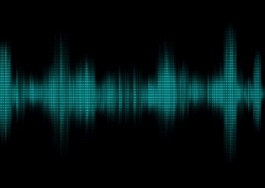Ghostly Voices

This website is not intended to serve as a comprehensive guide to Electronic Voice Phenomenon or EVP. The purpose of this information is to provide visitors with an overview of this intriguing and significant field of paranormal research. Additionally, I see this as an opportunity to share my personal views and opinions on this phenomenon. For more comprehensive information on EVP and other forms of trans communications, I recommend visiting the Association Trans Communication website. In my opinion, they provide the most comprehensive and authoritative guide to electronic voice phenomena, including theories, best practices, and other related information. I sincerely hope you have a pleasant visit. If you have any comments, suggestions, or other feedback, please do not hesitate to contact me.
What is EVP
The abbreviation "EVP" stands for "Electronic Voice Phenomena," which pertains to the recording of human-like speech, words, phrases, or other sounds using audio recording devices, such as tape recorders, digital voice recorders, or any other technology designed for voice recording. During recording, the sounds, voices, and words are typically inaudible to the human ear, but can only be heard through playback or computer amplifications or enhancements. These voices are also commonly perceived in the recording, where there should be no other sounds, only silence.
Prior to October 2009, I held strong disbelief in ghosts and the paranormal. However, following some extraordinary occurrences in my own home, I developed a curiosity towards the notion that there may be validity to the paranormal and the existence of ghosts. Although I was not entirely convinced at the time, my mind was becoming more receptive to the notion that there may be validity to the paranormal and the existence of ghosts and other supernatural phenomena. I have even started watching reality-based paranormal programming on television, such as "Ghost Hunters" on the SyFy channel and "Ghost Adventures" on the Travel Channel. Initially, I held reservations about their electronic voice phenomena (EVP) and believed their evidence was simply a collection of random sounds or noises that appeared to resemble words. This may be attributed to our innate inclination to interpret and find meaning in arbitrary sounds and even visual stimuli, such as perceiving shapes in clouds. This propensity is commonly referred to as matrixing or pareidolia.
At the outset of my EVP research, I harbored doubts about its validity as evidence for the existence of ghosts. However, I procured a low-cost digital voice recorder, obtained Audacity®, a free audio editing software, and conducted numerous EVP sessions within my own home. Having conducted a limited amount of research, I have reached the conclusion that EVP may serve as evidence for paranormal phenomena and potentially support the existence of ghosts and the continued existence of our consciousness after death. Due to the extraordinary experiences and captured EVP, I believe my own home is likely haunted. I believe that any potential ghosts or entities that may inhabit or haunt my residence are not malicious or harmful in nature. However, I acknowledge the possibility of one or multiple mischievous spirits who enjoy playing pranks or causing objects to disappear. Alternatively, it could simply be my own poor memory, but ghosts can serve as a convenient excuse for my forgetfulness.
What the skeptics say
The majority of mainstream scientists and those generally skeptical of the paranormal also express skepticism towards the Electronic Voice Phenomenon. These skeptics may explain several reasons, including the possibility that the words or phrases may be attributed to stray radio frequencies, fragments of cell phone conversations, or other forms of audio or electronic interference, such as CB radio transmissions. Additionally, certain skeptics theorize that EVP could potentially stem from auditory pareidolia or apophenia. Pareidolia and apophenia refer to the human tendency to attempt to assign meaning to otherwise arbitrary auditory or visual stimuli.
The skeptics, too, believe that certain EVPs may be the product of deliberate deceit or fraud. Unfortunately, there is always the potential for a hoax. However, I am confident that most individuals and institutions conducting EVP research are sincerely motivated to study and comprehend this phenomenon.
One of the more peculiar theories of skepticism brought to my attention suggests that EVP may be imprinted onto recording media by the subconscious mind of the practitioner, projecting their thoughts onto the media itself. I find it perplexing that certain skeptics believe in telekinesis, a phenomenon often deemed paranormal and controversial, but they are unwilling to consider the possibility that EVP could be a genuine attempt by entities to communicate with the living. In my view, this theory is more implausible to believe in than the potential existence of ghosts or other supernatural phenomena. In my opinion, this theory is quite absurd.